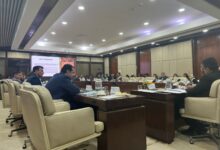
A Coastline in Crisis: Where Waste Meets the Waves
On a blistering morning in June, the stench rising from Karachi’s Boat Basin pier is almost unbearable. Just beyond the shore, a brownish slick snakes its way across the sea’s surface, flecked with floating debris and chemical sheen. This is not an isolated incident—it’s the new normal.
Every day, Karachi dumps an estimated 500 million gallons of untreated sewage into the Arabian Sea, according to data from the Sindh Environmental Protection Agency (SEPA). Coupled with industrial effluents and domestic waste, this unfiltered torrent of toxicity flows straight from the city’s open drains into creeks and inlets that feed the sea. “There are days the water looks more like a chemical broth than a marine ecosystem,” says Dr. Sameena Rizvi, a marine biologist at the University of Karachi. “We’re witnessing the collapse of an entire coastal habitat. ”The sea is losing its ability to cleanse itself, she adds. Coral beds once found near Manora Island have turned pale and brittle. Fish stocks are vanishing. Dolphins spotted off Clifton shores just a decade ago are now a rare sight, their numbers dwindling under the toxic tide.
The Fisherfolk on the Frontlines
For the local fishing community, this ecological collapse is more than a tragedy—it’s a threat to survival.“We used to catch pomfret, shrimps, and silver croakers close to the shore,” says fifty-year-old Mehran Baloch, a third-generation fisherman from Ibrahim Hyderi. “Now, we have to go farther out, burn more fuel, and return with less.”
Mehran shows a smartphone photo of his catch from a week earlier: barely a bucketful. “This used to be a day’s work. Now it’s all we get in three.”The Pakistan Fisherfolk Forum (PFF) estimates that over 30,000 fisherfolk in Karachi face income loss due to declining marine life. The organization’s recent survey found that 67% of respondents in fishing villages had reduced earnings by more than half since 2018. Shamshad, a 28-year-old fisherwoman, processes dried fish for export. She blames factory waste and oil spills. “The fish smell foul. No one wants to buy them anymore. Some even develop rashes after handling the catch,” she says, showing scars on her hands.
The Port Oil Slicks and Their Long Shadows
While municipal waste is visible and foul, a more discreet threat seeps in from the ports: oil pollution.Karachi is home to two major ports—Port Qasim and Karachi Port Trust (KPT). With hundreds of vessels docking monthly, accidental oil discharges, bilge dumping, and illegal ship scrubbing are common, environmental groups claim.“There is virtually no oversight,” says Naveed Asghar, a retired maritime engineer turned environmental advocate. “When a ship dumps oil at night, it disperses by morning. But the damage to fish gills and spawning grounds lasts for years.”
Satellite imagery shared by an independent research group in April 2024 revealed frequent oil slicks near the Harbour Channel, often coinciding with tanker arrivals. SEPA, when approached for comment, acknowledged the issue but cited “limitations in enforcement capacity and legal gaps” in maritime pollution regulation.
The Clock is Ticking Can Karachi Reclaim Its Blue Lifeline?
Efforts to save Karachi’s marine ecosystem exist but are scattered and underfunded. A proposed wastewater treatment plant at Mauripur has been in limbo since 2020. Environmentalists say political will, not just funding, is the missing ingredient.“The sea is not a garbage bin,” says Sadiqa Bano, an activist with SeaWatch Karachi. “It sustains life, culture, and food security. What’s at stake isn’t just marine life, it’s our city’s future.”
A study conducted by Karachi University revealed that the Port Qasim coastal area is highly polluted, posing a serious threat to the area’s biodiversity. The investigation showed that seawater samples had high oil and chemical contents, with concentrations of heavy metals like chromium and lead exceptionally higher than permissible limits.Bano’s group organizes monthly beach cleanups, but she admits the work feels Sisyphean. “Until the root cause—untreated sewage and regulatory negligence—is addressed, we’re just cleaning up symptoms.”Meanwhile, Mehran still sets sail every morning, hoping for a better catch. “We are not asking for favors,” he says. “We are just asking for a sea that’s alive.”






